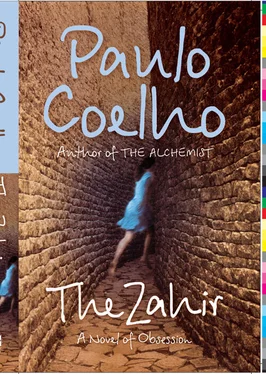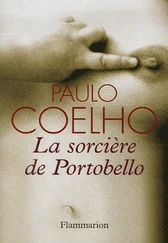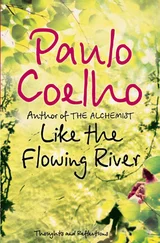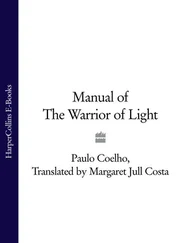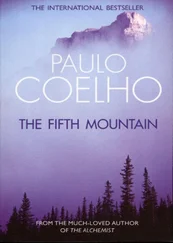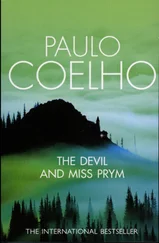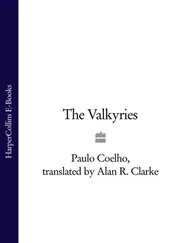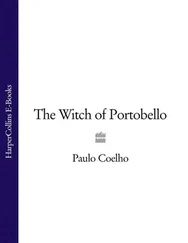‘Let’s find out a bit more about our reader,’ I say, and there is an immediate silence. ‘Here he is, about to leave at any moment, and he’s hardly said a word about his life. What do you do?’
Despite the number of vodkas he has drunk, Mikhail seems suddenly to recover his sobriety.
‘I organise meetings at the Armenian restaurant.’
‘What does that involve?’
‘I stand on stage and tell stories. And I let the people in the audience tell their stories too.’
‘I do the same thing in my books.’
‘I know, that’s how I first met…‘
He’s going to say who he is!
‘Were you born here?’ asks Marie, thus preventing him from finishing his sentence (‘…how I first met your wife’).
‘I was born in the Kazakhstan steppes.’
Kazakhstan. Who’s going to be brave enough to ask where Kazakhstan is?
‘Where’s Kazakhstan?’ asks the sales representative.
Blessed are those who are not afraid to admit that they don’t know something.
‘I was waiting for someone to ask that,’ and there is an almost gleeful look in Mikhail’s eyes now. ‘Whenever I say where I was born, about ten minutes later people are saying that I’m from Pakistan or Afghanistan…My country is in Central Asia. It has barely 14 million inhabitants in an area far larger than France with its population of 60 million.’
‘So it’s a place where no one can complain about the lack of space, then,’ says my publisher, laughing.
‘It’s a place where, during the last century, no one had the right to complain about anything, even if they wanted to. When the Communist regime abolished private ownership, the livestock were simply abandoned and 48.6 per cent of the population died. Do you understand what that means? Nearly half the population of my country died of hunger between 1932 and 1933.’
Silence falls. After all, tragedies get in the way of celebrations, and one of the people present tries to change the subject. However, I insist that my ‘reader’ tells us more about his country.
‘What are the steppes like?’ I ask.
‘They’re vast plains with barely any vegetation, as I’m sure you know.’
I do know, but it had been my turn to ask a question, to keep the conversation going.
‘I’ve just remembered something about Kazakhstan,’ says my publisher. ‘Some time ago, I was sent a typescript by a writer who lives there, describing the atomic tests that were carried out on the steppes.’
‘Our country has blood in its soil and in its soul. Those tests changed what cannot be changed, and we will be paying the price for many generations to come. We even made an entire sea disappear.’
It is Marie’s turn to speak.
‘No one can make a sea disappear.’
‘I’m twenty-five years old, and that is all the time it took, just one generation, for the water that had been there for millennia to be transformed into dust. Those in charge of the Communist regime decided to divert two rivers, Amu-Darya and Syr-Darya, so that they could irrigate some cotton plantations. They failed, but, by then, it was too late – the sea had ceased to exist, and the cultivated land became a desert.
The lack of water affected the whole climate. Nowadays, vast sandstorms scatter 150,000 tons of salt and dust every year. Fifty million people in five countries were affected by the Soviet bureaucrats’ irresponsible – and irreversible – decision. The little water that was left is polluted and is the source of all kinds of diseases.’
I made a mental note of what he was saying. It could be useful in one of my lectures. Mikhail went on, and his tone of voice was no longer ecological, but tragic.
‘My grandfather says that the Aral Sea was once known as the Blue Sea, because of the colour of its waters. It no longer exists, and yet the people there refuse to leave their houses and move somewhere else: they still dream of waves and fishes, they still have their fishing rods and talk about boats and bait.’
‘Is it true about the atomic tests, though?’ asks my publisher.
‘I think that everyone born in my country feels what the land felt, because every Kazakh carries his land in his blood. For forty years, the plains were shaken by nuclear or thermonuclear bombs, a total of 456 in 1989. Of those tests, 116 were carried out in the open, which amounts to a bomb 2,500 times more powerful than the one that was dropped on Hiroshima during the Second World War. As a result, thousands of people were contaminated by radioactivity and subsequently contracted lung cancer, whilst thousands of children were born with motor deficiencies, missing limbs or mental problems.’
Mikhail looks at his watch.
‘Now, if you don’t mind, I have to go.’
Half of those around the table are sorry, the conversation was just getting interesting. The other half are glad: it’s absurd to talk about such tragic events on such a happy occasion.
Mikhail says goodbye to everyone with a nod of his head and gives me a hug, not because he feels a particular affection for me, but so that he can whisper:
‘As I said before, she’s fine. Don’t worry.’
‘“Don’t worry,”he says. Why should I worry about a woman who left me? It was because of her that I was questioned by the police, splashed all over the front pages of the scandal sheets; it was because of her that I spent all those painful days and nights, nearly lost all my friends and…‘
‘…and wrote A Time to Rend and a Time to Sew. Come on, we’re both adults, with plenty of experience of life. Let’s not deceive ourselves. Of course, you’d like to know how she is. In fact, I’d go further: you’d like to see her.’
‘If you’re so sure about that, why did you help persuade him to come to supper with us? Now I have a clue: he appears every Thursday at that Armenian restaurant.’
‘I know. You’d better follow that up.’
‘Don’t you love me?’
‘More than yesterday and less than tomorrow, as it says on those postcards you can buy in stationery shops. Yes, of course, I love you. I’m hopelessly in love, if you must know. I’m even considering changing my address and coming to live in this huge, empty apartment of yours, but whenever I suggest it, you always change the subject. Nevertheless, I forget my pride and try to explain what a big step it would be for us to live together, and hear you say that it’s too soon for that; perhaps you’re afraid you’ll lose me the way you lost Esther, or perhaps you’re still waiting for her to come back, or perhaps you don’t want to lose your freedom, or are simultaneously afraid of being alone and afraid of living with someone – in short, our relationship’s a complete disaster. But, now that you ask, there’s my answer: I love you very much.’
‘So why did you help?’
‘Because I can’t live for ever with the ghost of a woman who left without a word of explanation. I’ve read your book. I believe that only by finding her and resolving the matter will your heart ever truly be mine. That’s what happened with the neighbour I was in love with. I was close enough to him to be able to see what a coward he was when it came to our relationship, how he could never commit himself to the thing he wanted with all his heart, but which he always felt was too dangerous to actually have. You’ve often said that absolute freedom doesn’t exist; what does exist is the freedom to choose anything you like and then commit yourself to that decision. The closer I was to my neighbour, the more I admired you: a man who decided to go on loving the wife who had abandoned him and who wanted nothing more to do with him. You not only decided to do that, you made your decision public. This is what you say in your book; it’s a passage I know by heart:
Читать дальше
